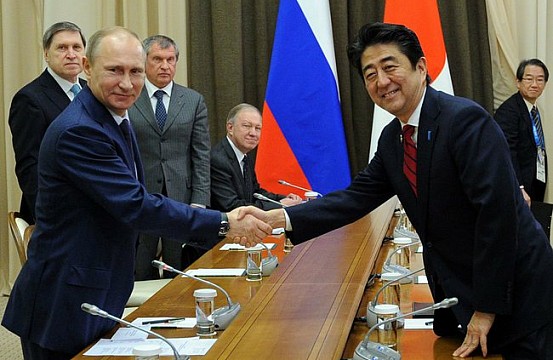
The US and Russia Should Converse without Stirring Conflict
The U.S., along with the U.K. and France, launched a series of airstrikes on Syrian facilities said to be tied to chemical weapons. Vladimir Surkov, a Russian presidential aide who supports the Bashar Assad administration, stated in an article that “Russia’s romance with the West is over,” and warned that Russia “is bracing for a new era of geopolitical loneliness.”
There are signs that this is happening. From Russia’s annexation of Crimea, to “Russiagate,” in which Russia is suspected of intervening in the U.S. presidential election, to the country’s attempted assassination of a former Russian spy in the U.K., there have been incidents that invite mutual distrust from both sides.
There is a great fear the U.S. and Russia will use the air strikes as incentive to confront each other with military might. Not only would this extend the Syrian Civil War, but this would also impact the security of Europe and Russia’s neighboring countries in Asia, which include Japan. Both sides should create opportunities to talk with one another while it’s not too late.
It’s understood, though, that both the U.S. and Russia face circumstances from which they cannot back down. With his gaze set on the fall midterm elections, it’s difficult for President Donald Trump to make any concessions. As Russia’s economy stagnates, President Vladimir Putin tends to take political measures that make enemies of other countries while maintaining unity in his own.
However, it seems that with respect to the Syrian airstrikes, the U.S., U.K. and French militaries concluded that inflicting damage on local Russian forces would be unnecessary. And as of late, though the Russian military wanted to counterattack with its own weapons, it has not made a move, according to the Russian government. It seems it has avoided direct conflict. Both sides are waiting to see what the other will do before the situation grows more critical.
In two months, Russia will be hosting the FIFA World Cup. A large number of spectators and reporters from outside the country will no doubt be visiting. Sports must not be colored by politics. President Putin should work to avoid stirring conflict, and fulfill his responsibility as the host country.
In May, Prime Minister Shinzo Abe is scheduled to visit Russia and attend a conference with President Putin. In order to keep Russia from descending into isolation, this dialogue between Japan and Russia is growing increasingly important.
